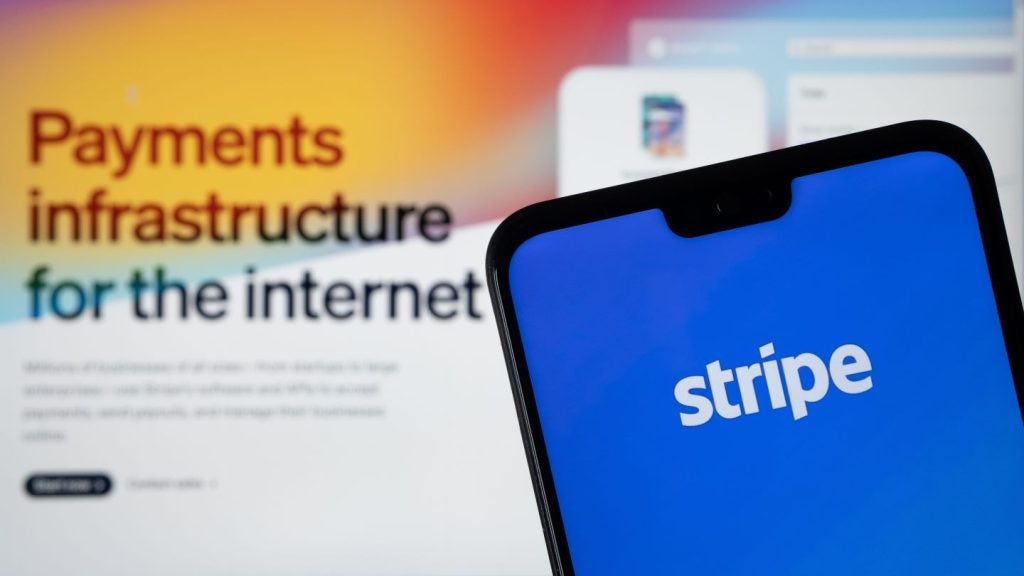Brazil’s fast-growing and highly competitive cards market is providing opportunities for issuer-processing platform vendors. While larger operators typically handle the work in house, smaller banks are more likely to look to third-party processors. Robin Arnfield reports
In 2011, the total number of payment cards in issue in Brazil rose by 9% year on year to an estimated 687m, according to Associação Brasileira das Empresas de Cartões de Crédito e Serviços (ABECS), the Brazilian credit card trade association.
The number of private-label cards in issue rose by 10% year on year to 247.4m in 2011, while debit cards rose by 7% to 266.3m and credit cards by 13% to 173.3m.
“There is increasing interest from global issuer processors in the Brazilian market due to the growth in consumer lending in Brazil in the last two to three years,” says Andreas Suma, senior director for Latin America at US-based cards analytics firm FICO.
In Brazil, FIS, TSYS and First Data are competing with domestic third-party issuer processors such as Orbitall and CSU CardSystems, as well as other foreign players such as Spain-based Indra and Hewlett-Packard(HP)/EDS – HP bought EDS in 2008 and still uses the EDS brand name for its processing business in Brazil.

US Tariffs are shifting - will you react or anticipate?
Don’t let policy changes catch you off guard. Stay proactive with real-time data and expert analysis.
By GlobalData“There is a high probability that there will be a long-term consolidation into a select group of processors in Brazil, and that the first movers will have an advantage over their competitors,” says Suma.
In-house versus outsourced
Most large Brazilian banks process their own card portfolios in house, because they want to retain control, says Suma. “Similarly, most Brazilian private-label card issuers do their own in-house processing.”
Banks which process internally include Citibank Brazil’s Credicard credit card business, Banco do Brasil and Santander Brasil, while Bradesco outsources to FIS.
“Currently, TSYS and First Data have limited issuer processing volumes in Brazil,” says Richard Speer, chairman of US-based consultancy Speer & Associates. “But FIS has what could evolve into a significant processing agreement with Bradesco.”
However, mid-tier and small Brazilian banks do outsource their card portfolios for reasons of economy of scale, says Suma. “Because they are very nimble, small Brazilian banks are seeing very rapid growth in credit and debit card issuance, which represents an opportunity for third-party processors,” he says.
Private-label cards
Mauricio Bonifacino, PAYware CMS software business development director for Latin America at VeriFone, says that Brazilian private-label issuers used to act as their own acquirers. “Now, following the 2010 deregulation of the Brazilian acquiring market, they are increasingly using both Redecard and Cielo, Brazil’s two dominant acquirers, to acquire their cards,” he says.
“The problem is that the private-label issuers have very proprietary ways of managing their portfolios, and using Cielo and Redecard will force these issuers to migrate to more standard card issuance platforms,” Bonifacino says. “This is because the resulting increase in acceptance of their cards by Brazilian retailers will lead to greater transaction volumes, which the private-label issuers’ proprietary platforms will find it difficult to manage.”
In 2011, VeriFone won a contract to provide its PAYware CMS issuance platform to Sorocred, a Brazilian private-label issuer with 4m cards.
“Sorocred had a proprietary platform, and it wanted to integrate with Cielo and Redecard to increase its market share,” Bonifacino says. “But in order to do this, Sorocred needed a different processing platform, so it changed to VeriFone. We’re also helping Brazilian retailer Pernambucanas, which has 16m private-label credit cards, to migrate its cards from a proprietary platform to an industry-standard platform.”
In 2009, TSYS won a contract from Banco Carrefour, the Brazilian store cards arm of retailer Carrefour, to migrate Carrefour’s private-label and MasterCard-branded credit cards to its TS Prime platform. Banco Carrefour’s Visa-branded credit cards are processed by São Paolo-based CSU CardSystems.
An industry source told Cards International that TSYS completed the migration of Carrefour’s 5m private-label cards to TS Prime in 2011, but is still in the process of migrating Carrefour’s MasterCards.
In April 2011, Itaú Unibanco, Brazil’s second-largest bank, bought a 49% stake in Banco Carrefour, which has a total of 7.7m cards in issue.
“TSYS’s contract with Carrefour gives us an opportunity to build a relationship with Itaú’s management,” TSYS chairman and CEO Phil Tomlinson said in an analyst presentation in April 2011.
Upgrades
“The large Brazilian banks represent a major opportunity for processing software vendors,” says Hugo Costa, managing director of ACI Worldwide’s Brazilian operation.
“The last time that Brazilian banks installed in-house processing systems was 10-12 years ago. There is now a window for them to rethink their initial strategy, and to deploy platforms offering greater flexibility and faster time to market with new products.”
Most of the big banks are using a heavily modified version of VisionPlus, First Data’s old issuer processing system which has since been replaced by FirstVision. Because of the level of customisation, the Brazilian banks’ VisionPlus systems have to be maintained by internal or third-party resources.
“These platforms are expensive to run,” Costa notes.
“The Brazilian cards market has changed enormously in the last 12 years,” he adds. “The growth rate for cards in issue has slowed, from 30% a year to 10% a year. Twelve years ago, it was easy to sign up new cardholders. Now issuers have to be more competitive and creative in targeting new cardholders, so they need more sophisticated processing platforms.
“Also, Brazilian credit cards are very complex, as they can have various different financial products linked to them, such as microfinance or instalment loans.”
Costa says that foreign processor software vendors need to tailor their platforms to the Brazilian market.
“Off-the-shelf processing software won’t work in Brazil, given the specialist nature of the cards market,” he warns. “ACI has been adapting its ACI Issuer software to suit the requirements of Brazilian issuers. We’re working to develop a pipeline of contracts to supply ACI Issuer to banks, private-label issuers and issuer processors.”
Orbitall
In December 2011, Itaú Unibanco sold 100% of its third-party card issuer processing subsidiary Orbitall Serviços e Processamento de Informações Comerciais to Brazilian IT firm Stefanini IT Solutions.
“The principal reason for the decision to sell the [100%] stake in Orbitall reflects the fact that the provision of third-party processing services on behalf of other financial institutions is not related to Itaú Unibanco’s core business,” Itaú said in a statement.
Fitch Ratings analyst Robert Stoll tells Cards International that selling Orbitall was also intended to help improve Itaú’s efficiency ratio – operating costs as a percentage of revenues. According to a Deutsche Bank report by Mario Pierry and Tito Labarta, following the completion in 2010 of Itaú’s merger with Unibanco (the merger was announced in 2008), the bank’s main goal has been to achieve greater operating efficiency.
“Itaú Unibanco management has set a target of achieving an efficiency ratio of 41% by the end of 2013,” the Deutsche Bank analysts wrote.
“Stefanini wasn’t a card processor before it acquired Orbitall, but it sees a great opportunity in Brazil to become a processor and also an acquirer,” says Alexandre Nardy Soares, client partner at FICO Latin America.
“Orbitall uses VisionPlus, which is an old platform,” says Verifone’s Bonifacino. “Now that Stefanini has bought Orbitall, I think it will be looking for a new technology platform that will enable Orbitall to support a wider range of card product types.”
Orbitall suffered a blow when it lost Brazilian government-owned bank Caixa Econômica Federal (CEF) as a client to Madrid-based processor Indra in 2010.
“Indra is helping CEF to migrate its card portfolio onto an in-house-operated platform,” says Bonifacino. In the first phase of this migration, Indra will process CEF’s cards, with the ultimate goal of CEF taking the processing in house.
“Orbitall says on its website that it processes 30m cards, but this figure includes CEF as well as Itaú’s cards,” says Nardy Soares. Itaú said in a statement that it would take the processing of its cards in house following Orbitall’s sale to Stefanini.
The fact that Orbitall was owned by Itaú, which is also a card issuer, meant that it was not seen as independent, which acted as a deterrent for Itaú’s rivals, says Costa.
“For competitive reasons, other big banks were reluctant to process their cards with Orbitall,” he says. “This would mean that a competitor, Itaú, would know about their card strategies and policies.”
In a statement, Stefanini said that it plans to invest BRL300m ($170.40m) up to 2014 in its business, including new acquisitions, and that it expects 50% of this amount to be invested in Brazil.
Costa says that while he expects Stefanini to invest in Orbitall, money alone will not guarantee that Orbitall will take market share from the other two leading third-party issuer processors: CSU CardSystems and FIS.
“Investing money isn’t the key differentiator,” Costa says. “If Orbitall doesn’t optimise its operation, if it fails to retain the expertise in its management team, if it doesn’t create new products quickly, it won’t be able to win new customers.”
FIS
In 2006, US-based FIS formed a processing joint venture, Fidelity Processadora e Serviços (FPS), with Bradesco and Santander Brasil. In 2010, Bradesco bought out Santander and increased its stake in FPS to 49%, with FIS owning the remaining equity in the joint venture.
Under a 10-year agreement signed in 2010, FPS provides issuer processing for all Bradesco’s Visa and MasterCard portfolios, including its Visa Cartão Transporte prepaid freight transport card, and the private-label cards that Bradesco issues on behalf of Brazilian retailers.
FPS processes the Visa Vale prepaid meal voucher cards issued by Companhia Brasileira de Soluções e Serviços (CBSS), which is a joint venture between Bradesco and Banco do Brasil. In November 2011, CBSS rebranded itself as Alelo.
“Visa Vale is the largest card product in Alelo’s portfolio,” says Mauricio Icaza, FPS’s chief operating officer. “Through FIS’s card processing platform, FPS also processes Alelo’s Visa Travel Money prepaid card.”
Other FPS clients include Banco Panamericano, Banco de Brasilia, and private-label issuers Casas Bahias, Inter Supermercados, Hermes and Real Supermercado.
As at January 2012, FPS processed 50m credit, debit, private-label and prepaid cards in Brazil, Icaza says.
“In addition to issuer processing, FPS sees an opportunity to expand its service offerings in Brazil, including providing acquiring processing, mortgage processing, bank processing and health insurance services as its parent FIS does in the US,” he says.
“FPS also sees opportunities to provide third-party processing services to smaller, independent card issuers in Brazil.”
Elo
In 2010, Banco do Brasil, Bradesco and CEF founded Elo, a domestic-only debit, prepaid and credit card scheme, with the goal of having 90m Elo-branded cards in issue by 2015.
According to a March 2011 statement by Bradesco, Alelo will be incorporated into Elo Participações, the Bradesco- and Banco do Brasil-owned holding company for the Elo scheme. In the same statement, Bradesco said it planned to sell its stake in FPS to Alelo. However Cards International understands that as of January 2012, the Alelo-FPS transaction had not taken place.
FPS started processing Elo-branded credit cards issued by Bradesco in May 2011, and was also awarded a contract to process Elo-branded cards issued by Alelo.
“Plans are underway for Alelo to issue several ELO-branded card products,” says Icaza. “These cards, which will be mostly prepaid cards, will be processed by FPS.”
“FIS has great potential in Brazil due to its partnership with Banco do Brasil, CEF and Bradesco in Elo,” says Costa. “The aim with Elo is to create a mass-market card brand.”
CSU CardSystems
Because it has no ties to banks, CSU CardSystems is the largest independent third-party issuer processor in Brazil, says Costa.
As at 30 September 2011, CSU processed 25.3m cards, representing a 26.5% increase on the 20m cards it processed a year earlier.
Of the 25.3m cards, 9.39m were open-loop credit cards, 5.25m were hybrid or dual-use cards which can either act as private-label or open-loop credit cards, and 10.67m were pure private-label cards.
“Because the big banks do their own processing, our main client base is retailers and regional banks,” says Mônica Hojaij Carvalho Molina, investor relations director at CSU Group, CSU CardSystems’ parent company.
CSU’s clients include regional banks Banco do Estado do Rio Grande do Sul (Banrisul) and Banco do Estado do Espírito Santo (Banestes), credit union federation Sistema de Crédito Cooperativo (SICREDI), and Tribanco, the financial services arm of Brazilian retailer Grupo Martins.
“Tribanco began migrating its 3m Tricard private-label credit cards to CSU in January 2011, completing the process in March 2011,” says Carvalho Molina. “It’s now getting ready to start issuing MasterCards.” In an interview with Brazilian newspaper Valor Econômico, Tribanco’s president João Ayres Rabello Filho said that the advantage of using CSU was that the bank would be able to issue open-loop credit cards as well as private-label cards.
In 2011, CSU launched the Flex prepaid card product, which allows credit card issuers to offer prepaid cards on the same platform as their credit cards. The Flex card’s advantage is that, provided the cardholder passes the issuer’s creditworthiness checks, it can be converted into a credit card without a new plastic being issued, CSU says.
“We currently have one client for the Flex card,” says Carvalho Molina.
CSU launched an acquirer processing platform in 2011, which so far has one client: Banrisul.
“We are negotiating to provide acquiring services to other banks,” Carvalho Molina says.







